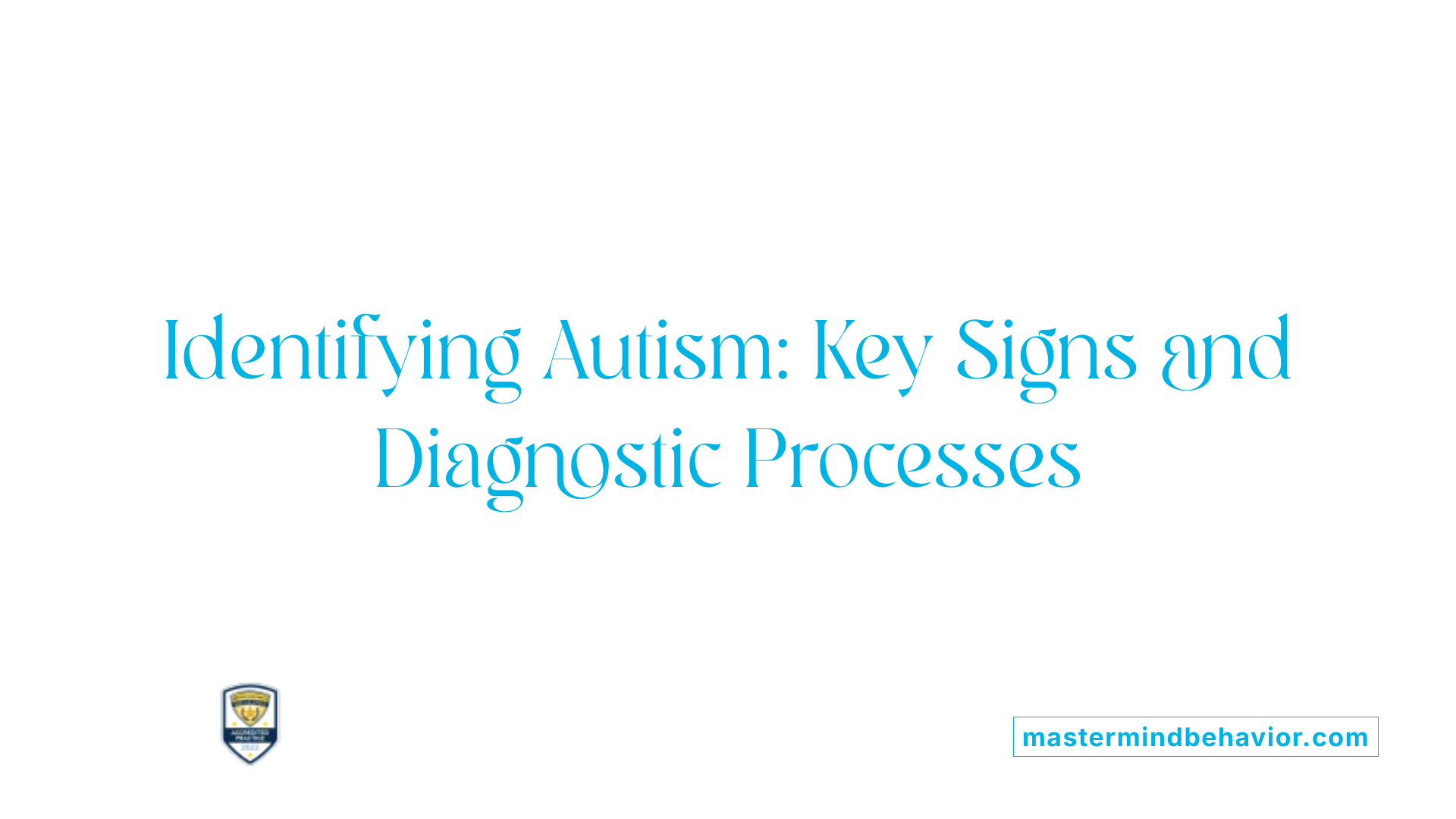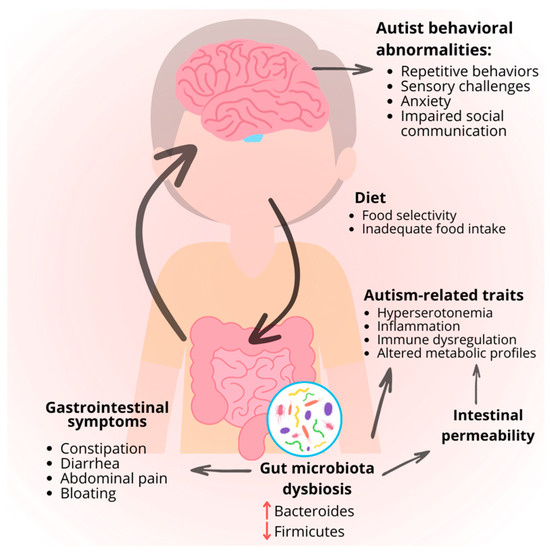With the help of Autism Behavioral Therapy, caregivers can enhance independence in daily routines
Secret Symptoms And Signs to Recognize in Individuals With Behavioral Autism
When you run into someone with behavioral autism, identifying key signs and signs and symptoms is important. You might discover difficulties in social interactions and communication, as well as a strong need for regimens. Additionally, sensory level of sensitivities can cause overwhelming experiences. Comprehending these characteristics can enhance your assistance and treatments, however there's more to discover regarding exactly how these habits manifest in day-to-day scenarios. Let's explore what these indicators truly appear like.
Difficulties in Social Interactions
When you connect with somebody on the autism range, you may discover they deal with social signs and interaction. These challenges can make social communications feel overwhelming for them. You might see them staying clear of eye get in touch with or standing also close or also far during conversations, which can develop misunderstandings. They could not notice body language or face expressions, making it harder for them to evaluate just how others are feeling.
Furthermore, you may discover that they favor routines and acquainted setups, which can limit their readiness to participate in new social circumstances. They might chat about their rate of interests in wonderful detail without observing if you're interested when they do involve. This can lead to one-sided conversations that leave you really feeling separated. Comprehending these difficulties can aid you come close to communications with empathy and patience, promoting an extra comfy environment for both of you.
Trouble With Verbal and Non-Verbal Interaction

Identifying these signs is necessary, as it helps you much better assistance and involve with individuals on the autism spectrum. By comprehending their interaction obstacles, you can foster much more purposeful links and provide a much more helpful setting.
Repetitive Behaviors and Routines
Interaction obstacles often go along with various other signs of autism, such as repeated actions and a strong preference for routines. You may see that individuals with autism often engage in details, repeated actions, like hand-flapping, rocking, or repeating phrases. These habits can supply convenience and a feeling of control in an often overwhelming world.
When they adhere to an organized timetable,Regimens are just as important; many individuals prosper. You might discover that changes to these routines can result in considerable distress. For instance, if they have a day-to-day routine of consuming breakfast at a particular time or complying with a certain route to school, any kind of disturbance can trigger stress and anxiety.
Recognizing these patterns aids you comprehend their behavior and give assistance. By fitting their need for regular and enabling repetitive activities, you can create an extra comfy environment that eases their obstacles.
Sensory Sensitivities

Usual Sensory Triggers
Sensory sensitivities can considerably affect daily life for people with autism, as specific stimuli frequently cause frustrating reactions. Common sensory triggers include loud noises, intense lights, and strong smells. You may see that sudden noises, like alarms or sirens, trigger anxiousness or distress. Similarly, fluorescent illumination in shops can really feel harsh and uncomfortable. Structures can likewise play a substantial duty; harsh fabrics or certain food textures may be unbearable for you. Furthermore, crowded locations can bewilder your detects, making it tough to concentrate or relax. Understanding these triggers can help you manage your environment better. By understanding what affects you, you can take steps to reduce discomfort and enhance your day-to-day experiences.
Behavior Actions Described
Comprehending your behavioral reactions to sensory sensitivities is vital, as they typically reveal how you interact with the world. You might notice that particular noises, lights, or structures overwhelm you, bring about stress and anxiety or discomfort. When encountered with these stimulations, you might take out, cover your ears, or also react boldy. These actions aren't just traits; they're your method of coping with overstimulation. You might likewise locate on your own seeking details sensory experiences, like deep pressure or silent atmospheres, to help ground on your own. Identifying these patterns helps you recognize your requirements much better and can guide how you communicate them to others. By recognizing your sensory level of sensitivities, you can function in the direction of creating an environment that really feels much more comfy and manageable for you.
Coping Strategies Summary
Acknowledging your sensory sensitivities is simply the first action; now it's time to discover coping strategies that can help you manage those experiences successfully. Begin by developing a sensory toolkit customized to your demands. Establishing a structured regimen can additionally offer predictability, minimizing stress and anxiety around sensory overload.
Limited Passions and Focus
While several individuals create a vast official source array of rate of interests, those with autism often demonstrate limited interests and an extreme emphasis on certain topics. You might see that someone with autism can spend hours diving into their favorite topic, whether it's a certain kind of train, a specific motion picture, or a scientific idea. This intense emphasis isn't simply a pastime; it can become a main component of their identity and social interactions.
You may locate that discussions focus on these passions, and they may have a hard time to participate in wider subjects. For them, these concentrated interests supply comfort and a feeling of proficiency. While it is essential to encourage expedition of new subjects, valuing their interests is equally vital. By comprehending and acknowledging these limited interests, you can cultivate a supportive environment where they really feel valued and understood, allowing for more purposeful links and communications.
Emotional Regulation Troubles
People with autism commonly face difficulties in psychological law, which can be influenced by their intense focus on details passions. You might see that when an individual is deeply engaged in a preferred task, they can experience strong emotions, whether excitement or irritation. This strength in some cases makes it hard for them to move gears or manage their sensations when points do not go as prepared.

Irregularity in Developmental Milestones
When it involves developmental milestones, you'll notice that people with autism typically reveal a large range of variability. Some may hit turning points on time, while others could hang back or progression at a different rate. As an example, you might see a child master language skills however battle with social interactions. This disparity can be complex, as standard benchmarks don't constantly apply.
It's necessary to recognize that each individual's journey is special. Some might create intricate skills early, just to deal with challenges later. Others might take longer to accomplish fundamental milestones but then thrive in certain areas. Observing these patterns can assist you understand their toughness and needs much better.
Regularly Asked Concerns
How Is Autism Identified in Children and Grownups?
To detect autism in youngsters and adults, specialists review actions, interaction abilities, and social interactions. They commonly make use of standardized tests, meetings, and observations to establish if a specific meets the criteria for autism spectrum disorder.
Are There Different Kinds Of Autism Spectrum Disorders?
Yes, there are different kinds of autism range problems, including Asperger's disorder and prevalent developmental disorder-not otherwise defined. Each type varies in severity and features, so comprehending these distinctions can aid you much better assistance people with autism.
What Treatments Work for Individuals With Autism?
When considering effective therapies for individuals with autism, find here you'll discover choices like Applied Habits Analysis, why not check here speech treatment, and occupational therapy. Each technique can help enhance interaction, social skills, and everyday working customized to individual requirements.
Can People With Autism Lead Independent Lives?
Yes, individuals with autism can lead independent lives. With the right support, skills training, and sources, you can assist them establish self-sufficiency, take care of day-to-day jobs, and thrive in numerous environments, cultivating their freedom.
Exactly How Can Families Assistance Liked Ones With Autism?
You can support your loved ones with autism by developing a structured setting, encouraging their rate of interests, practicing persistence, promoting interaction, and advertising social skills. Commemorate their achievements, despite how little, and develop an encouraging area.
Although numerous people on the autism spectrum can use and comprehend language, they frequently face substantial challenges with both non-verbal and spoken communication. Identifying these signs is necessary, as it assists you better assistance and engage with people on the autism spectrum. You may notice that people with autism typically involve in specific, repetitive actions, like hand-flapping, shaking, or duplicating expressions.Sensory sensitivities can significantly influence everyday life for people with autism, as specific stimuli often activate frustrating responses.When it comes to developing landmarks, you'll discover that people with autism usually reveal a broad variety of variability.